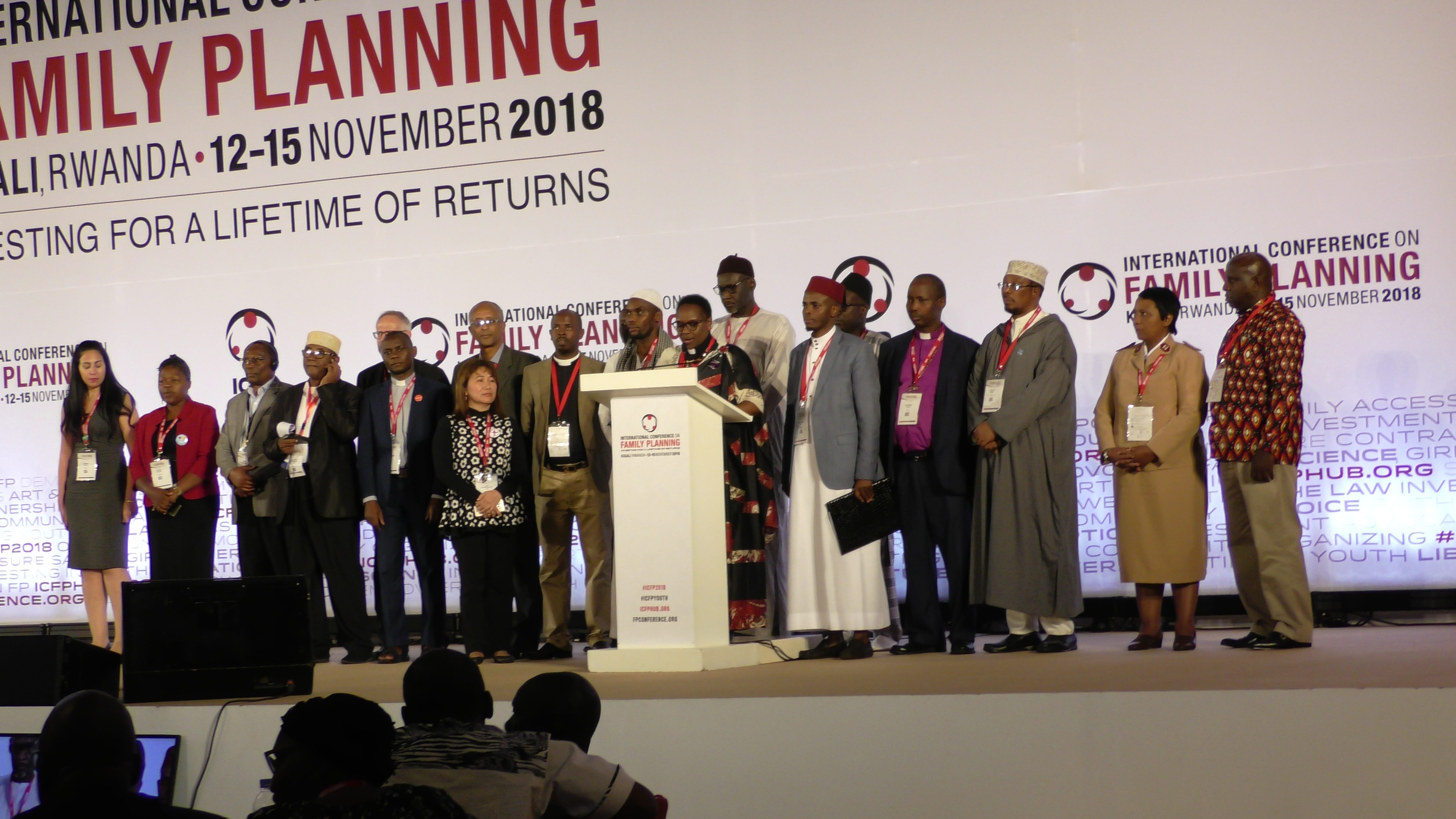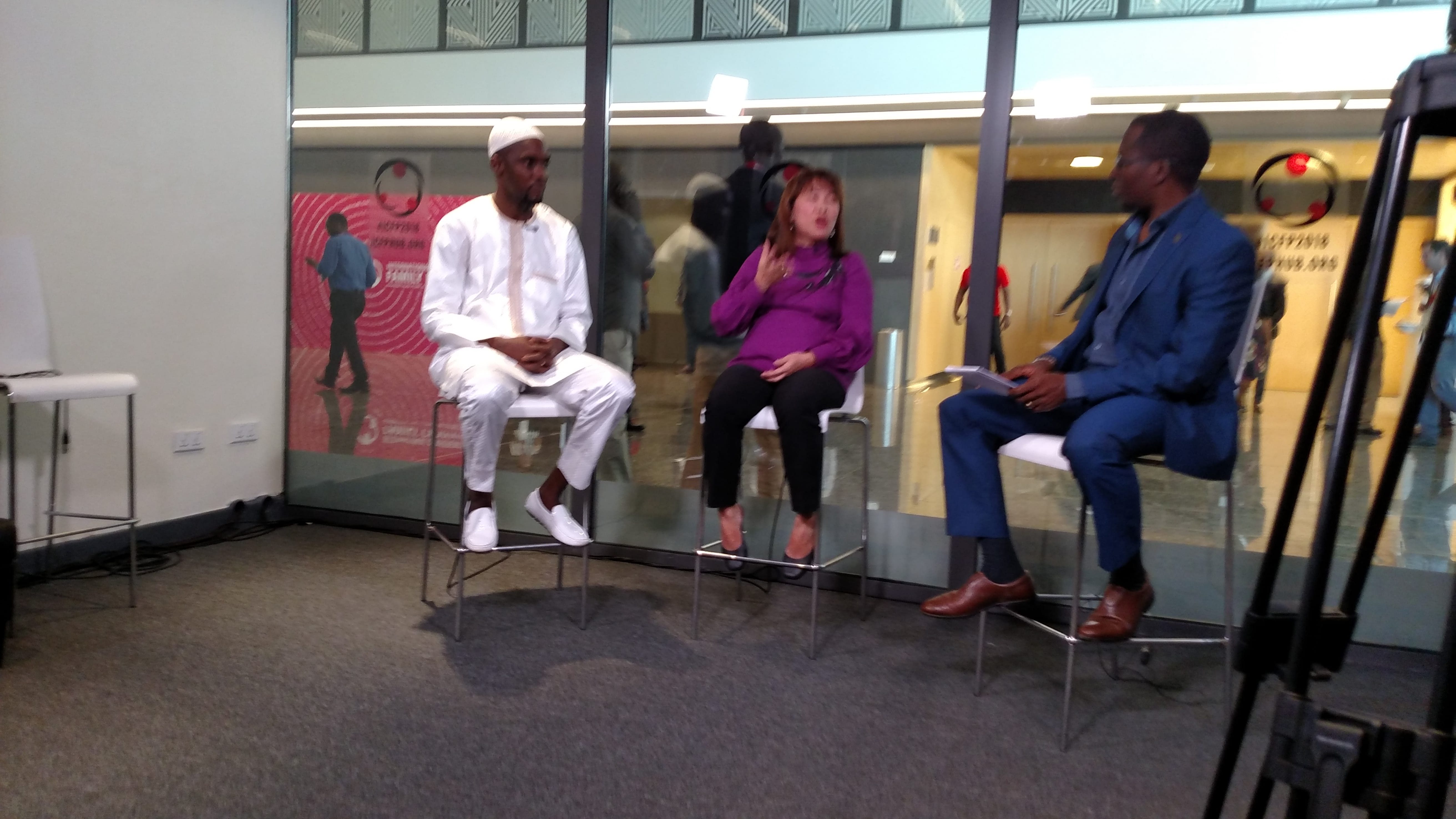
Faith Community Commits to Strengthen Family Planning Work at ICFP 2018
The faith community had a strong presence at the fifth International Conference on Family Planning, held in Kigali, Rwanda November 12-15, 2018. There were 22 posters related to faith and family planning, at least six panel sessions, a full-day workshop on faith-based family planning advocacy, an interfaith prayer service, a faith celebration, four lunch roundtable discussions and two Facebook Live sessions focusing on faith communities and family planning.
CCIH coordinated one Facebook Live session , Straight Talk on Religion and Family Planning, which featured Mr. Yoram Siame, Director of Advocacy Planning and Development at the Churches Health Association of Zambia (CHAZ), Ms. Bicbic Chua, Executive Director of Catholics for Reproductive Health, and Mr. Mohammed Bun Bida, Executive Director of Muslim Family Counselling Services.

The other session was on How Can the Family Planning Community Work Better with Faith Communities to Reach the Last Mile and featured Dr. Alma Crumm Golden, Senior Deputy Assistant Administrator, Bureau for Global Health, USAID, and Mr. Douglas Nsibambi, Community Engagement Officer, Advancing Partners and Communities project, FHI 360. It was moderated by Ms. Marta Pirzadeh, Senior Technical Officer, FHI 360.
A highlight was the commitment statement developed by faith leaders during the conference and presented in the closing plenary session. A statement of support and lessons learned at ICFP 2018 was presented by Reverend Dr. Lydia Mwaniki, Director, Theology, Family Life and Gender Justice, All Africa Conference of Churches (AACC), and Sheikh Musa Sindayigaya, Rwanda Interfaith Council for Health. The statement is below followed by a French translation.
Faith Community Statement
We, the faith community recognize that life is a gift from God and is sacred. It ought not to be taken away by preventable causes resulting from lack of information, support and care. We are mindful of those who have lost their lives while giving life and the challenges along the path of providing family planning to our communities. We are thankful for health services that reach people in need and increase availability of low cost services offered by faith facilities; we cherish religious leaders who openly support access to sexual and reproductive health services; for increasing collaboration between governments and faith communities in providing quality and accessible services. We acknowledge that increased uptake in family planning has reduced maternal mortality and child mortality; we commend the youth that are in school and those that are contributing to vibrant economies in their countries.
The faith community has learned 3 main lessons from ICFP 2018:
- We have learned about the power and success of faith-based organizations and religious leaders in contributing to the achievement of the Sustainable Development Goals (SDGs) in collaboration with other stakeholders.
- We have learned of the many opportunities that exist in achieving greater access to and uptake of family planning and look forward to the ways the faith community can continue to shape the family planning agenda, until and after 2020.
- We have acquired skills and knowledge that will help accelerate the faith communities’ actions at national, regional, and community levels.
The faith community provides enormous opportunities for progress in family planning and we make the following three commitments:
- We commit to continuing to provide and support quality family planning education, service delivery, and referrals to all communities.
- We commit to advocate, sensitize, mobilize and partner with governments, traditional and other religious leaders, and stakeholders to enact policies that address lack of access to services due to distances, cost, lack of trained personnel, and insecurity.
We commit to advocate for religious leaders to address the unique issues that affect our youth in family planning. - We have been encouraged again that we can gather many faiths together and agree on a common agenda while maintaining the integrity of our faith in serving others. We ask other delegates to commit to engaging with us and we commit to engaging with you. Thank you for this opportunity to share our commitments with you, as we all work to ensure all our communities survive and thrive.
One Comment
Pingback:
Faith Community Shares Family Planning Advocacy Success and Commitment to Scale Up Efforts at ICFP 2018 – KMYDO